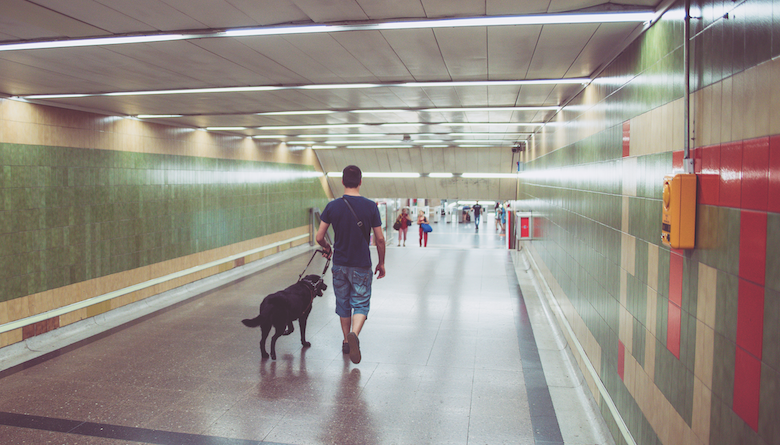How to Raise a Puppy to be a Guide Dog
Imagine blindfolding yourself and letting your dog lead you down the stairs, out of your house or apartment, around the block and back home. Sounds risky, right? My Chiweenie and I would never make it past my front door without an injury.
Guide dogs get extensive training for five to nine months, depending on the organization, to succeed with these tasks. Their guidance helps visually impaired or blind people go to work, navigate busy airports, avoid traffic and many other unexpected obstacles.
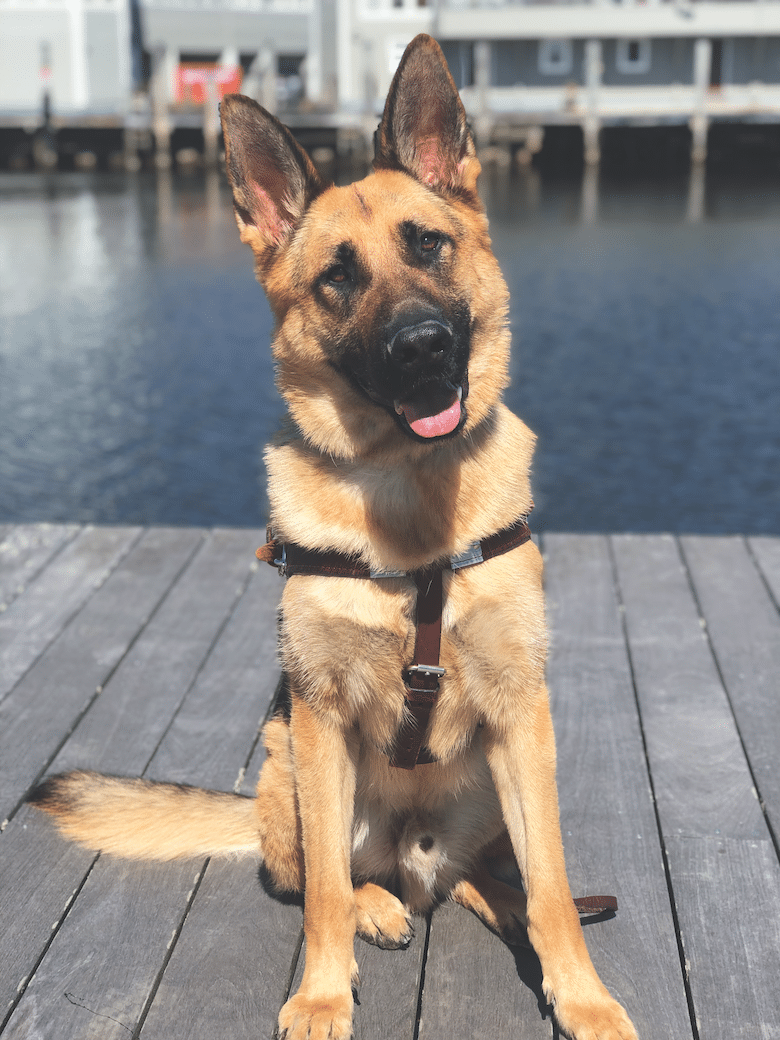
Photo: Courtesy Fidelco
Related: 10 Types of Service Dogs and What They Do
How do these dogs get accustomed to so many different scenarios? Most of this work is done before the official guide dog training even starts.
At 7 to 8 weeks old, the puppy lives with a foster family, just like yours or mine, called a puppy raiser, which has the job of raising the dog to be socially adaptable, well-mannered and calm in various situations.
“We rely pretty heavily on our puppy raisers to get the dogs off to a strong start,” says Kerry Lemerise, program manager of puppy raising at Guiding Eyes for the Blind, based in New York, which has 39 regional centers along the East Coast.
Once the puppy turns 14 to 16 months, he graduates and goes into the guide dog training program before being paired with his new life partner.
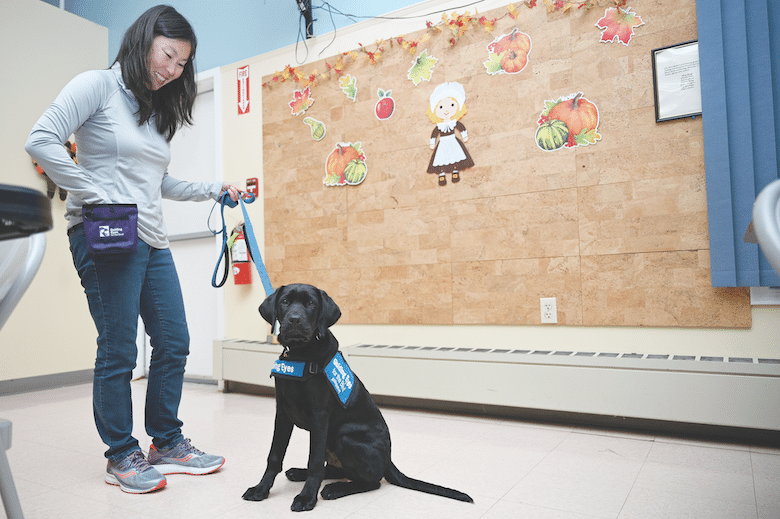
Guiding Eyes Puppy Raiser Class. Photo: Mark Shimahara
No experience is required to be a puppy raiser — the guide dog organizations provide all the guidance and training necessary. All you need is the time, patience and understanding that you’ll eventually say goodbye when your dog graduates.
Here, two organizations that train guide dogs for people with vision loss, talk about the puppy raisers’ responsibilities and how they help change lives for hundreds of visually impaired people each year.
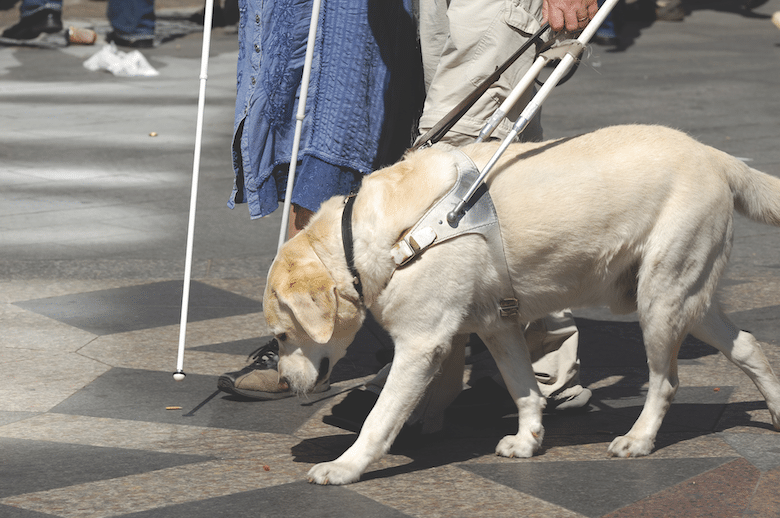
Guide dog trainers expose their puppies to various situations — anything from going through airport security to crossing
a busy street. Photo: Miguel Cano | Getty Images
Socializing the puppy
Each organization wants a wide range of puppy raisers, from singles to large families to homes with other pets, because that represents the diversity of the clients who will be matched with the service dogs after graduation.
“We want every type of home imaginable,” says Eric Gardell, supervisor of the puppy raiser department at Fidelco Guide Dog Foundation in Bloomfield, Connecticut.
Fidelco breeds their own German Shepherd Dogs, which are known for loyalty and intelligence.
Families are encouraged to expose the dog to as many situations as possible — the very same experiences the dog will be required to handle as a guide dog.
This includes taking them through airport security, up and down stairs, to busy restaurants, work and through grocery stores. The goal is to raise a dog who is unfazed by cats, children, traffic or tempting buffet tables.
“The puppy raisers are invaluable,” Eric says. “They are making a dog that someone else can live with.”
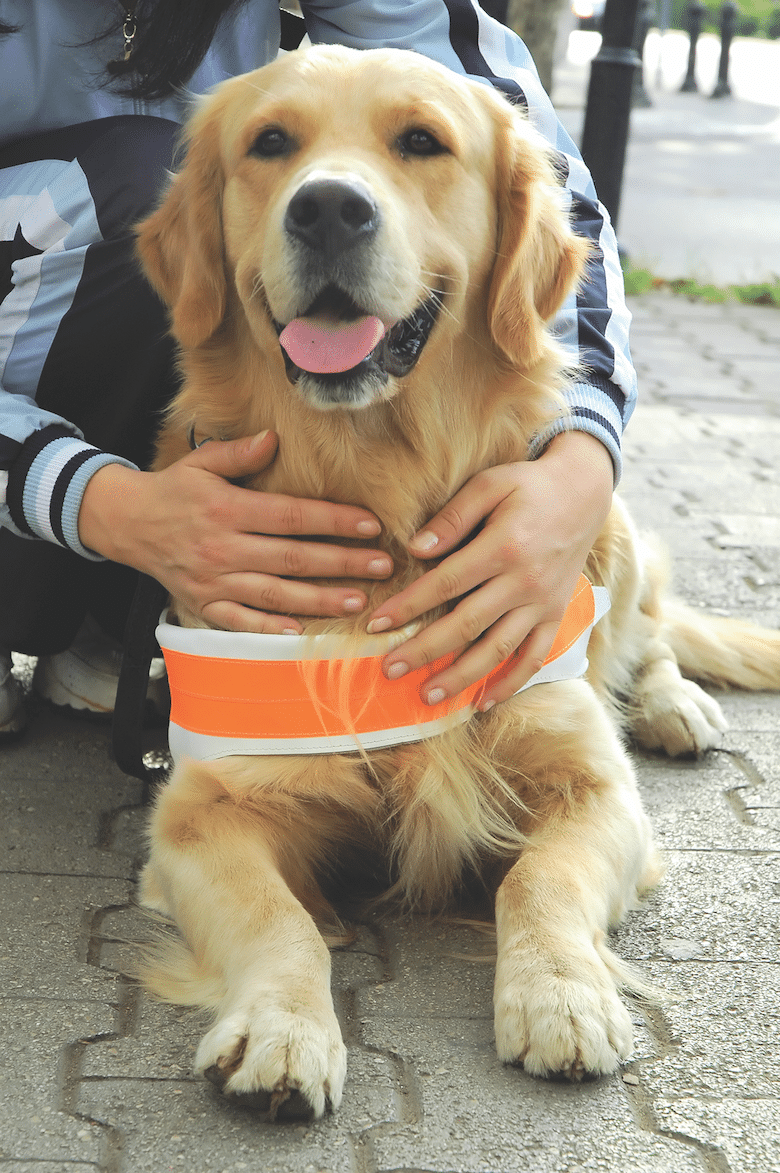
For puppies who show signs of discomfort in traffic, or on staircases or escalators, which would eliminate them from being guide dogs, the organizations connect them with other jobs like K9 programs, security, and
search-and-rescue teams. Some even go home as pets. Photo: bobbymn | Getty Images
Training weekly
As dog owners, we want our dogs to have good manners: no excited jumping on neighbors or barking at passing dogs, no digging holes in the backyard and no chewing on shoes. But for service dogs, obedience skills are necessary for a successful partnership.
“Our clients have higher needs for good house manners,” says Kerry, from Guiding Eyes. “You might think it’s OK if your dog picks up a shoe and moves it, but for our clients, that could mean being late to work.”
Each family is required to bring their puppies to a weekly training class, and eventually every other week, where obedience skills like nice leash manners, proper vet and groomer etiquette, walking under different leveled underpasses, distraction avoidance and basic commands are taught.
Guiding Eyes breeds Labrador Retrievers because of their trainability, flexibility in different situations, and comfortability around people, Kerry says.
Graduating
Ken Bernhard, a lawyer in Connecticut, is currently fostering his seventh German Shepherd Dog puppy, Gypsy, through Fidelco. He became so inspired by his experience raising his first puppy in 1989, he succeeded in getting a law passed to allow dogs in training to go into public places, and also now serves as the organization’s chairman of the board.
The hardest part is saying goodbye, he admits, but even so, “there isn’t a person who would say it wasn’t the most rewarding and interesting experience.”
For this reason, many puppy raisers come back time and time again. Both organizations have families on their 20th puppy.
“Initially (people) come to us because they love dogs,” says Kerry, who estimates about 70 percent of puppy raisers return at least a second time. “Then they meet our graduates, and it becomes this really powerful experience.”
To learn more about being a puppy raiser, visit fidelco.org and guidingeyes.org, or look for an organization in your region.
Featured photo: c-foto | Getty Images
Read Next: What Happens to Guide Dogs When They Retire?

